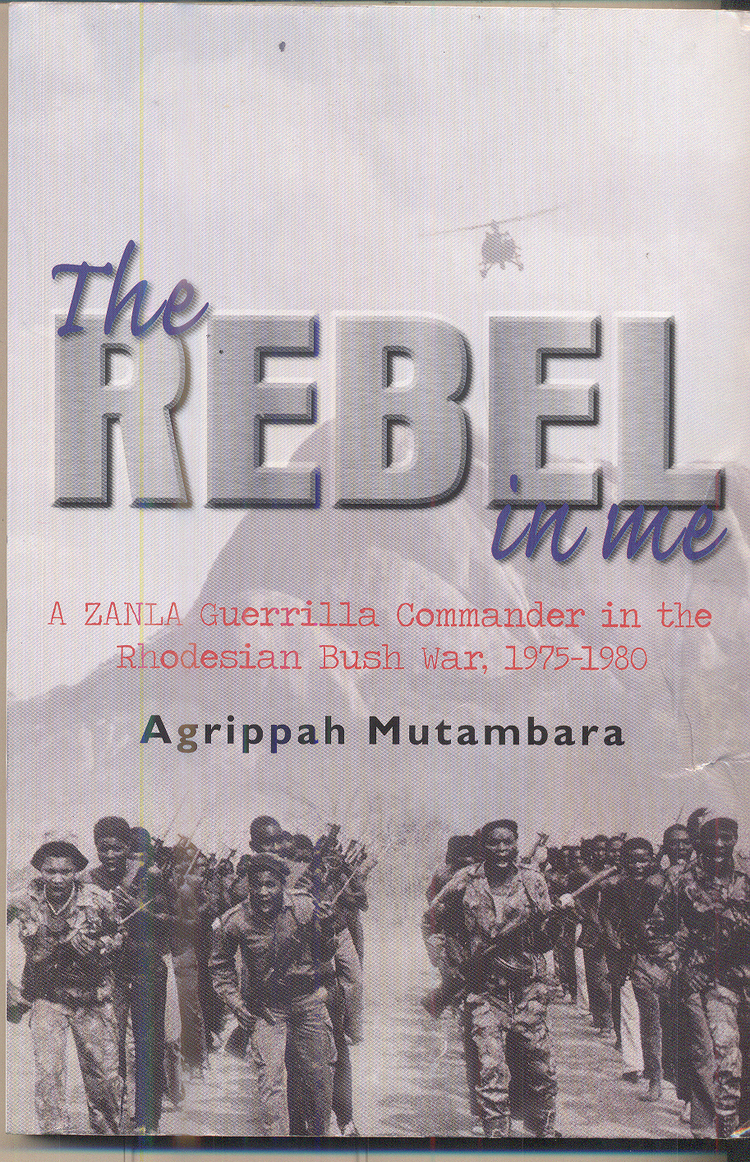
The Sunday Mail

 Last week the country was remembering the bravery of the men and women who sacrificed their lives for the liberation of Zimbabwe during the Heroes Day commemorations.
Last week the country was remembering the bravery of the men and women who sacrificed their lives for the liberation of Zimbabwe during the Heroes Day commemorations.
The road to freedom was not an easy one but was rather gruesome, with thousands losing their lives in the process.
Accounts by individuals who took part in the liberation struggle illustrate the tough conditions which freedom fighters had to endure in their quest to free the country from the vices of oppression.
Some of these liberation heroes have made use of literature to document events that led to the attainment of independence.
One such individual is Ambassador Agrippa Mutambara who documented his journey before, within and after the war of liberation in his book “The Rebel in Me”.
Having joined the liberation struggle in 1975 and adopting the name Dragon Patiripakashata, he led several armed guerrilla incursions into Rhodesia, before being promoted to the General Staff and appointed instructor.
This book chronicles the life of Mutambara from the time he was a young boy, through the period which his perception about the state of things was transformed after being exposed to the excesses of the colonial regime, his journey to neighbouring Mozambique to join the liberation fighters to the roles he played during and after the war.
In this book, Ambassador Mutambara gave a detailed account of how he and many others came to the decision of joining the armed struggle and the conditions they went through to attain their goals, highlighting the course of events with clarity.
This piece of literature gives the reader a front row seat in the liberation struggle’s theatre, providing an opportunity to view the Rhodesian bush war through the eyes of a guerrilla commander, experience the trials and tribulations of a freedom fighter, contribution of the masses and the celebration of achieving freedom and independence.
In the first chapter, the writer outlines events that led to the planting, cultivation and growth of the seeds of rebellion within him.
He recounts his childhood, when his father would read news clips which highlighted the humiliation that blacks suffered at the hands of the whites, stories about laws that disposed blacks of their land and placed it in the hands of the whites.
As he grew older, there were more elements that kept on brewing his hatred for oppressive laws which latter on drove him to join the war of liberation.
“The influence of my parents and my association with other students, who abhorred the segregated system of government and its treatment of blacks, radicalised my views regarding racial inequalities so pervasive in our society,” he wrote explaining how his perception of rule of law began to be transformed.
Mutambara detailed his first real encounter with a guerrilla fighter who had been admitted at the hospital at which his father was working, describing it as the major turning point in his life that led him to ditch a respectable job as Executive Secretary for Neshuro African Council and join the struggle.
His journey to Mozambique while trying to join freedom fighters was not smooth sailing. He encountered numerous obstacles and took several weeks to get there rather than the few days he had projected.
He highlights the risks that one had to take and the hardships which were endured by individuals while trying to make it into the liberators’ military ranks.
Readers will get to have a clear picture of how people survived in refugee camps and the processes they had to go through before being recruited in the liberation army.
Ambassador Mutambara stated that time and effort was invested in political orientation, highlighting national grievances that constituted reasons for choosing to come and join the armed struggle.
“The pouring out of national grievances was thus the foundation upon which further political orientation and military training was built. Chief amongst the national grievances were issues related to the dispossession of land and the brutality of the blacks by minority settlers,” he elaborated.
He detailed military training routines, deployment, operational scenarios and the living conditions in the bush.
Reading on, I understood how politics became the soul of the revolution, with the guerrilla fighters realising the importance of cultivating a relationship with the masses.
“Those of our early comrades, like Josiah Magama Tongogara, who went to train in guerrilla tactics in China, borrowed a lesson from the Chinese tactical concept of waging a successful guerrilla campaign which defined ‘winning the hearts and minds of the people’ as a critical factor.
An analogy of this new tactic was to liken the relationship of the fighters and the masses to the relationship between fish and water.”
Ambassador Mutambara also went on to capture the events surrounding Chimoio’s genocide attack in great detail, from the first bombs that were dropped to the burials that followed after.
The writer displayed his extraordinary story-telling abilities which kept me glued to the book as I followed the events that were unfolding with each page.
This book is gem packed with historical encounters that will give any reader a clear picture of where we came from as a nation and the sacrifices that were made on the road to independence.



